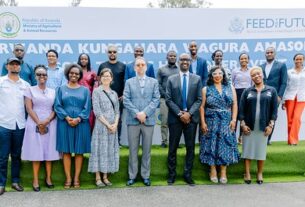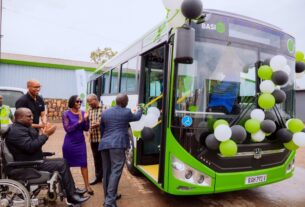As Rwanda celebrates its devoted Savings Week from October 24 to October 31, 2024, citizens are being encouraged to borrow a stronger culture of saving, with an emphasis on fostering development and securing their fiscal futures. This time’s theme, “ Invest, Look Ahead, ” aligns with the global festivity of International Savings Day, encouraging individualities to understand the significance of savings for long- term substance.
The action, commanded by the Ministry of Finance and Planning, focuses on breeding healthy saving habits among Rwandans. The government believes that an increase in the public savings rate is vital for fueling profitable development. A crucial thing within Rwanda’s alternate National Strategy for Transformation( NST2) is to boost public savings from the current 12.5 to 25.9 of the country’s GDP by 2024. By 2029, Rwanda aims to further increase the savings rate to an ambitious 28. This vision seeks to make a flexible profitable foundation that will sustain long- term growth, produce further investment openings, and secure the future of Rwandans.
Minister of Finance and Planning, Yusuf Murangwa, addressed the nation during the Savings Week, admitting the positive progress made so far but prompting citizens to continue perfecting their savings geste
. He emphasized the significance of advanced savings in stimulating profitable growth, stating, “ Increased savings and investment will lead to lower interest rates on loans and further affordable borrowing for investors. This wo n’t only enhance individual profitable stability but also strengthen the public frugality, boosting our tone- regard and fostering a stable fiscal terrain. ” According to Murangwa, saving constantly contributes to the overall profitable health of the nation by creating a robust fiscal sector that’s lower reliant on external debt.
The government’s drive to increase the public savings rate is nearly tied to its broader profitable vision, which seeks to produce further profitable openings, reduce poverty, and ameliorate the fiscal well- being of citizens. To this end, the government is prioritizing fiscal knowledge as a central pillar of its development docket. enterprise are underway to increase the chance of Rwandans who understand and effectively use fiscal services, with the thing of raising this figure from 71.4 in 2020 to 90 over the coming five times. fiscal knowledge programs aim to empower individualities by furnishing them with the knowledge and tools they need to make informed fiscal opinions, manage their finances effectively, and increase their savings.
In addition to fiscal education, Rwanda has also witnessed a significant growth in the use of banking services through mobile platforms. This digital metamorphosis is playing a pivotal part in expanding fiscal addition across the country. The number of people using mobile banking services increased by 18, rising from 2.4 million in June 2022 to over 2.5 million in June 2023. This growth highlights the adding availability of fiscal services, particularly among pastoral populations who might else be barred from traditional banking systems. With further Rwandans now suitable to pierce banking services through their mobile phones, the country is on track to significantly enhance its fiscal addition rate.

The government’s protrusions suggest that by 2029, 95 of the adult population will be exercising written fiscal services, over from 77 in 2020. This is an ambitious but attainable thing, as Rwanda continues to invest in digital structure and programs that enable broader access to fiscal tools and services. The expansion of mobile banking and other digital fiscal services is n’t only adding savings but also perfecting the fiscal habits of Rwandans, as it makes saving and investing more accessible and effective.
The government’s emphasis on fiscal knowledge and mobile banking services is also contributing to the reduction of walls to saving. numerous Rwandans, particularly in pastoral areas, have faced challenges in penetrating traditional banking services due to the lack of physical structure. still, with mobile plutocrat services and mobile banking apps, individualities can now save plutocrat, make payments, and indeed invest from the comfort of their homes. This technological vault has significantly enhanced access to fiscal services, making saving more doable and practical for a wider population.
Looking ahead, the government is keen to make on these successes, aiming to foster a culture of saving that will eventually contribute to the country’s overall profitable adaptability. The public savings thing is part of a broader strategy to reduce Rwanda’s reliance on external aid and bolster its profitable tone- adequacy. By adding the public savings rate and promoting fiscal knowledge, the government hopes to produce a more sustainable and inclusive fiscal terrain, where citizens can secure their futures while contributing to the nation’s long- term development.
Savings Week is n’t only a time for Rwandans to reflect on the significance of saving but also an occasion for the government to support its commitment to perfecting the fiscal geography. Through targeted interventions, similar as enhancing fiscal knowledge and expanding access to mobile banking, Rwanda is creating a more inclusive fiscal system that encourages individualities to save and invest for their futures.
Rwanda’s festivity of Savings Week 2024 serves as a memorial of the vital part that savings play in both individual and public development. By espousing a culture of saving, Rwandans can make stronger fiscal foundations, support profitable growth, and contribute to a more flexible future. Through strategic enterprise, similar as promoting fiscal knowledge, expanding mobile banking, and setting ambitious savings targets, Rwanda is working toward a brighter, more prosperous future for all of its citizens.



